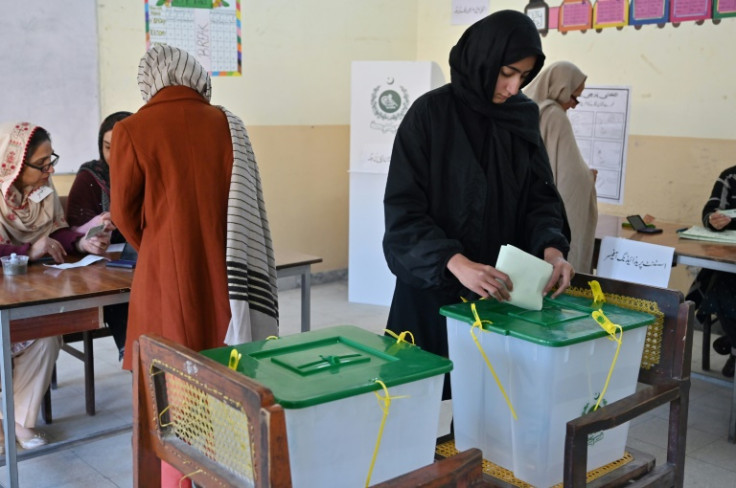
Pakistan suspended mobile phone and data services nationwide on Thursday for election day, in a move a digital rights group said was "inherently undemocratic".
A statement from the interior ministry said "precious lives have been lost" in recent militant attacks and such "security measures are essential to maintain the law and order situation and to deal with potential threats".
At least 28 people were killed in twin bomb blasts outside candidates' offices on Wednesday in attacks claimed by the Islamic State group, and two candidates have been shot dead in the lead-up to the vote.
Nighat Dad, a lawyer who runs the not-for-profit organization Digital Rights Foundation, said the outage "is an attack on the democratic rights of Pakistanis".
"Shutting down mobile phone services is not a solution to national security concerns. If you shut down access to information you create more chaos. How do you call (anyone) if, God forbid, there is an attack?"
She added that there is more room for disinformation to spread, including about reports of unconfirmed attacks.
"People will of course put their safety first if they are unable to verify rumors of an attack in their area," she said, noting such disinformation could cause voters to stay away from the polls.
Bilawal Bhutto-Zardari, head of the family-run Pakistan Peoples Party (PPP), demanded the government restore services and said party lawyers would challenge the decision in court.
Voters in Pakistan rely on a text messaging service to confirm the polling station where they are registered to vote.
NetBlocks, a global internet watchdog, said data confirmed there was a disruption to mobile phone and internet services "corroborating widespread user reports of outages".
"The ongoing election day internet blackout in Pakistan is amongst the largest we've observed in any country in terms of severity and extent," NetBlocks director Alp Toker told AFP.
"The practice is inherently undemocratic and is known to limit the work of independent election observers and cause irregularities in the voting process."
The election has already been marred by allegations of pre-vote rigging, and pollsters have predicted a low turnout following the jailing of former prime minister Imran Khan and the hobbling of his Pakistan Tehreek-e-Insaf (PTI) party.
Michael Kugelman, director of the South Asia Institute at the Woodrow Wilson International Center for Scholars in Washington, said it was "an ominous start to election day".
"It's clear, based on the steps they took as soon as the polls opened, that the powers that be remain concerned about the PTI's possible electoral impact. Especially its turnout potential," he said.
Mobile phone services were not disrupted in 2018, when analysts said security concerns were greater, with a bombing at an election rally killing more than 140 people.
On that election day, more than 30 people were killed in a blast in Quetta claimed by a chapter of the Islamic State.
Pakistan's authorities regularly cut access to mobile phones during major protests or during festivals when religious tensions rise, to prevent militants from communicating with each other.
Jammers are also used to prevent bombs from being triggered via mobile phone.
Internet and social media access has been disrupted several times during the election campaign, coinciding with opposition online livestreams.
The government blamed the outages on "technical difficulties" but the PTI party said it was an attempt to disrupt their campaign, which has already been heavily sidelined.
PTI information secretary Raoof Hasan told AFP the outage "will impede the work that our activists are doing on the ground to get people to the polling stations".
"The physical space given to us has been completely cut out so we are totally dependent on connectivity through the net," he said.







